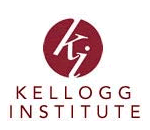
Will a tide of rising expectations undermine democracy in Central America?
“Polls show that inhabitants of the region feellike many others across Latin Americathat democracy hasn’t delivered in terms of standards of living,”says Luis Cosenza, the former minister to the presidency in Honduras.
Three distinguished policy makers will join Cosenza to debate whether democracy has truly taken hold in the region in a roundtable discussion,“The Future of Democracy in Central America,”to be held Nov. 20 (Thursday) at 4:15 p.m. in the auditorium of the Hesburgh Center for International Studies at the University of Notre Dame. A reception will follow the event, which is free and open to the public.
Other participants in the roundtable will include Ricardo Maduro Joest, former president of Honduras (2002ñ06); OttÛn Sol"s, a former presidential candidate in Costa Rica; and Arturo Cruz, Nicaraguan ambassador to the United States. Cosenza, who currently is Hewlett Visiting Fellow for Public Policy at Notre Dame’s Kellogg Institute for International Studies, will serve as moderator.
The panelists will explore issues concerning a quarter-century of democratization that swept across Latin America and the observation that public support for democracy is low and people have little regard for the institutions that underpin democracy, such as political parties, Congress and the judiciary. At the same time, analysts say citizens are increasingly connected to the global economy, with its rising consumer expectations, and the panel will explore whether they would choose a return to authoritarian rule if they felt it would increase their economic well-being.
During Maduro’s presidency, Honduras negotiated the U.S.ñCentral America Free Trade Agreement (CAFTA) and became the first Latin American country to sign a Millennium Challenge Account compact with the United States. He implemented a universal school lunch program and strengthened the rule of law in Honduras. Former president of the Central Bank (1990ñ94), Maduro holds a degree in economics from Stanford University and serves on the advisory board of the Kellogg Institute.
Sol"s is the co-founder and two-time presidential candidate for the Citizens Action Party, which has mounted a strong challenge to bi-party rule in Costa Rica. An economist, he has served as a government minister, congressman and Central Bank board member. President of the Inter-American Economic and Social Council of the Organization of American States (1987ñ88), he holds a master’s degree from the University of Manchester (U.K.).
Cruz was an early Sandinista supporter who later joined the United Nicaraguan Opposition (UNO), known as the Contras. Before becoming ambassador in 2007, he was professor of political economy at INCAE Business School. The co-author of"Varieties of Liberalism in Central America: Nation-States as Works in Progress,"Cruz holds a master’s degree in international relations from Johns Hopkins University and a doctorate in modern history from the University of Oxford.
This event is co-sponsored by the Kellogg Institute and Notre Dame’s Latin American Studies Program.
_ Contacts: Elizabeth Rankin, writer/editor, Kellogg Institute, 574-631-9184,_ " erankin3@nd.edu ":mailto:erankin3@nd.edu ; Therese Hanlon, events coordinator, Kellogg Institute, 574-631-4150, " Therese.Hanlon@nd.edu ":mailto:Therese.Hanlon@nd.edu
TopicID: 30386